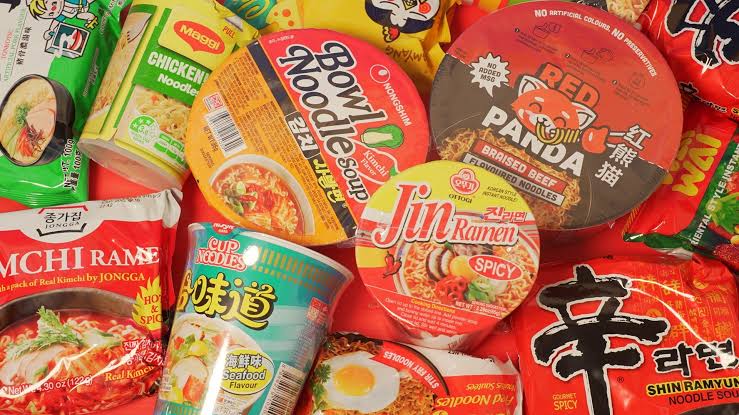
Noodles are easy to eat for everyone. They are long, thin strips that are simple to prepare and adaptable. There are many varieties of noodles, but not all of them are nutritious. We’ll concentrate on instant noodles in this post because they’re quick-to-prepare fast food. All that needs to be done is to remove the noodles from their packaging, cook them in hot water, and then add the ingredients.
Instant noodles are simple to prepare, but it doesn’t mean that everyone should eat them frequently. It’s okay to periodically have a package of quick noodles. But it’s not always a good idea to replace fast noodles with healthier meals, which need a lot more time and work to make.
Let’s see seven reasons why you should stay as far away from instant noodles as you can.
Noodles are Made up with preservatives
To extend the shelf life of instant noodles, butylated hydroxyanisole (BHA) and tertiary-butyl hydroquinone (TBHQ), a chemical preservative originated from the petroleum industry, are typically added. Regular exposure to these substances can have serious negative effects on health.
According to a 2005 study that appeared in the journal Drug Metabolism and Disposition, TBHQ exposure over an extended period of time may be cancer-causing. Asthma, nervousness, diarrhea, and negative effects on the liver and reproductive organs might also result from it. The list of substances that could have an impact on the endocrine system includes BHA. Multiple detrimental developmental, immunological, neurological, and reproductive impacts can result from endocrine system disruption.
MSG Content inclusion
Many people are aware that MSG is commonly included in quick noodles. One of the most dangerous compounds is monosodium glutamate or MSG. However, producers frequently employ it to improve the flavours of their food goods. MSG is a form of neurotoxin that has the potential to be quite addicting to some people. Even using alternate names for the component, some producers attempt to hide its use.
Studies have shown that the brain uses the amino acid glutamate as a transmitter of nerve impulses. Additionally, several bodily parts have glutamate-responsive tissues. However, when the body is exposed to MSG, it may result in aberrant glutamate receptor functioning.
Binge eating or addiction
Have you ever questioned why it’s so challenging to consume only one packet of quick noodles? They are tasty, but they are also quite addicting, and MSG is the only thing that makes them addictive. The additive, which is chemically created, can stimulate the brain’s pleasure regions and make you want more. As a result, there may be an increase in the risk of additional MSG-related illnesses as well as addictive behaviors and withdrawal symptoms.
High sodium content
The salt content of a single serving of instant noodles per 100g can range from 397 to 3678mg, occasionally even more. While sodium is a necessary mineral for your body to function properly, consuming too much sodium can be harmful to your health.
Processed goods, such as quick noodles, are one of the main causes of dietary salt intake. A high-salt diet has been associated with a higher risk of stomach cancer, heart disease, and stroke. A high-sodium diet may increase the risk of high blood pressure in people who are thought to be salt-sensitive, which can therefore harm the health of the heart and kidneys.
If you were to consume even just one pack of these, you would find it very challenging to stay under the WHO’s recommended sodium intake limits of 2 g per day. Having said that, consuming many packets of instant noodles every day will surely result in ingesting large levels of sodium.